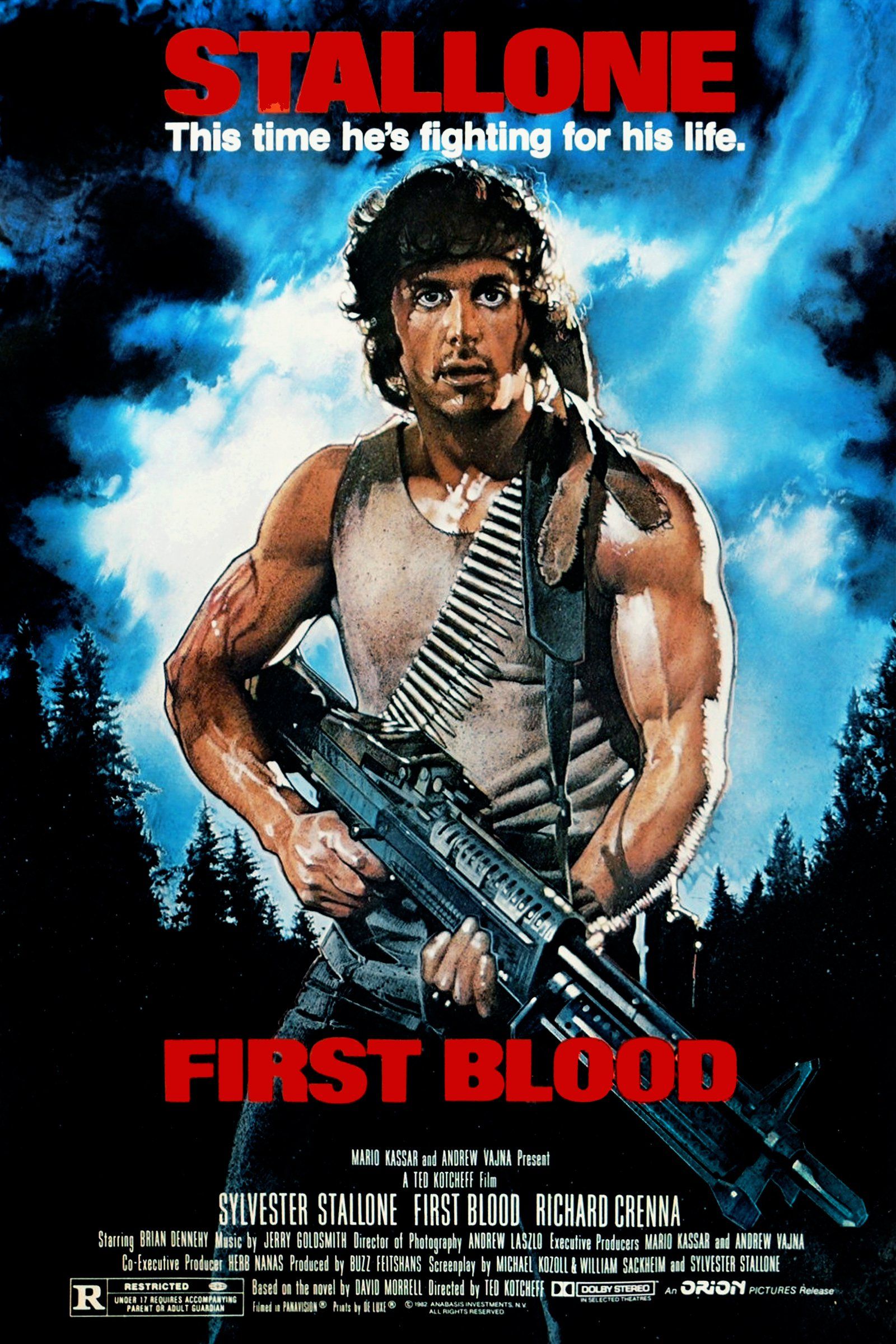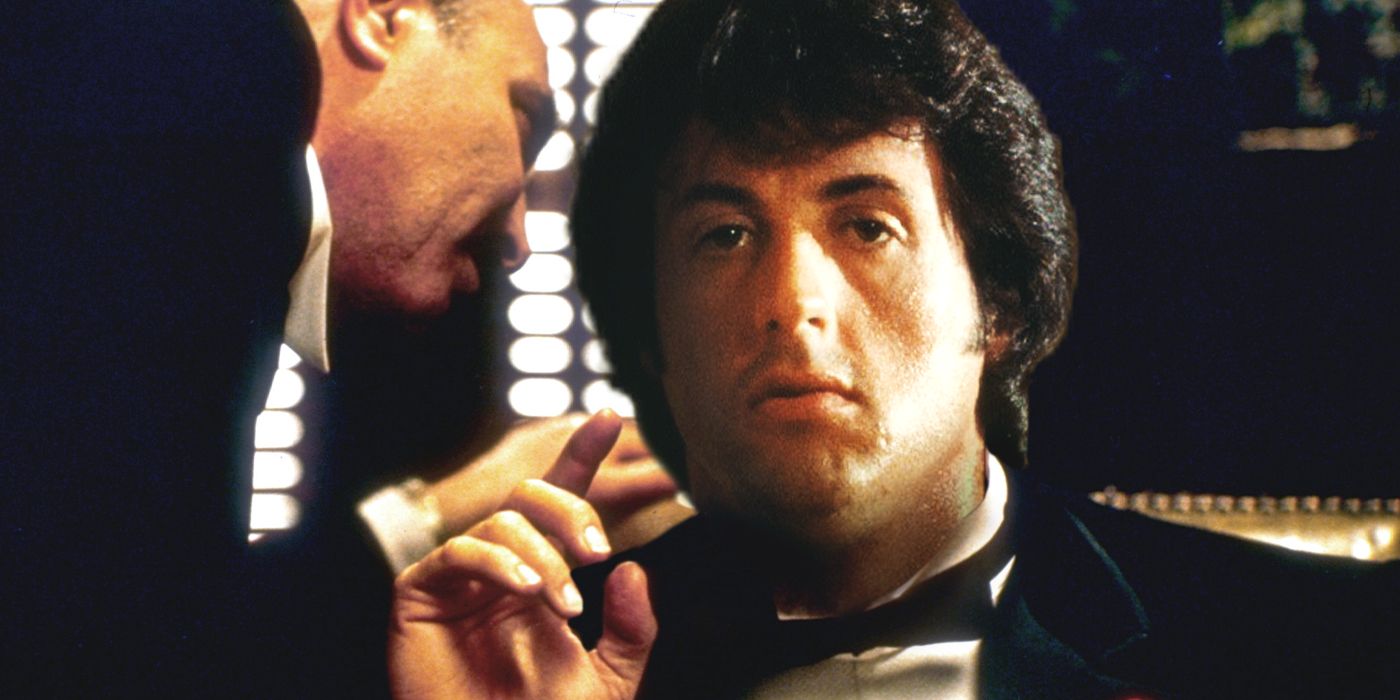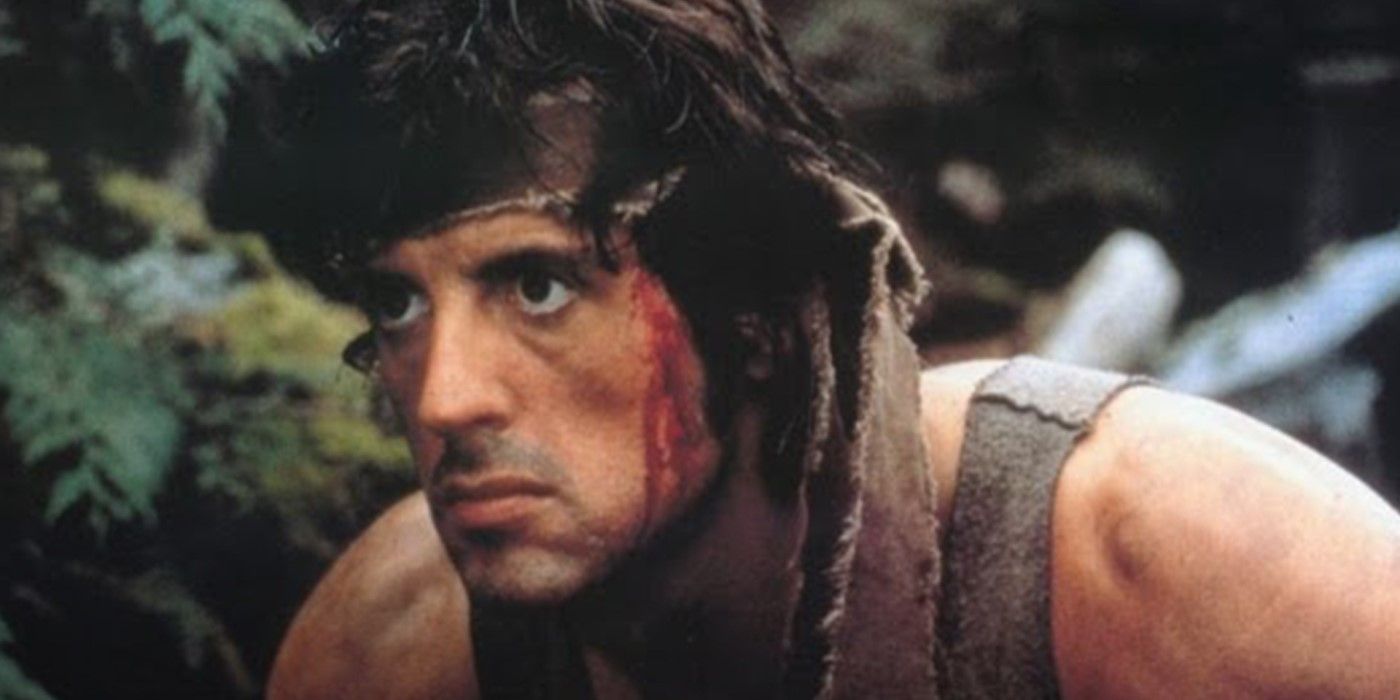The Big Picture
-
First Blood
is a rare action film that tackles trauma and loss, representing the post-traumatic stress disorder faced by many soldiers. -
First Blood’s
source material is inspired by World War II veteran Audie Murphy, but the film diverges in brutality and focuses on Rambo’s past. - While the franchise lost its way with jingoistic sequels,
First Blood
serves as a timeless classic honoring the struggles of veterans.
The 1982 action classic First Blood occupies a unique place in cinematic history, even compared to the other films within its franchise. While the Rambo sequels turned Sylvester Stallone’s titular protagonist into a patriotic, heroic action hero who fought to preserve the American way of life, the first entry in the series is a grounded character drama about trauma and loss. The film served as a representation of post-traumatic stress disorder that a generation of soldiers dealt with in the aftermath of the Vietnam War. While fictionalized, First Blood tackled serious systematic issues about the mistreatment of veterans.
While Stallone played a major role in shaping the direction and tone of both First Blood and its sequels, the first entry in the series was based on the novel of the same name by author David Morell. The differences between the film and novel are extensive; the novel features even more brutality, a much darker tone, and more time dedicated to examining Rambo’s past. The realism and sensitivity within Morrell’s writing is understandable, as First Blood was loosely inspired by the story of the World War II veteran Audie Murphy.

First Blood
A veteran Green Beret is forced by a cruel Sheriff and his deputies to flee into the mountains and wage an escalating one-man war against his pursuers.
- Release Date
- October 22, 1982
- Director
- Ted Kotcheff
- Runtime
- 93 minutes
Who Is the World War Two Veteran That John Rambo is Based On?
Born in 1925, Audie Murphy was an American soldier who received national recognition for his service in World War II. Like many young Americans, Murphy joined the fight against the Nazis after the bombing of Pearl Harbor in 1941; while he was too young at the time to officially enlist in military service, his sister helped him falsify records so that he could serve his nation. Despite being turned down for service by both the Marine Corps and the Navy, Murphy was able to enlist in the United States Army. He served in many of the most critical campaigns of the conflict, including the 1943 invasion of Sicily, the 1944 Battle of Anzio, and the successful liberation of France. By the time that Germany and Japan both officially surrendered to the Allied Forces in 1945, Murphy had received every valor award allocated by the U.S. Army, and additional honors from the Belgian and French services.
While the conflict proved to be one of the bloodiest in world history, Murphy earned significant exposure to violence within his service; by the time that the war was wrapped up, he was credited with over 250 kills. Like the character of John Rambo, Murphy dealt with severe post-traumatic stress disorder in the years after the war. Often sleeping with a pistol by his side, Murphy suffered from bouts of severe depression, vomiting, and fatigue; while he took sleeping pills to help him cope with graphic nightmares, his reliance on prescription medication gave him additional struggles throughout the subsequent decade. Murphy’s friends reported that his personality could change at a moment’s notice, and that he would often resort to violence as a result of not being able to communicate.

Sylvester Stallone’s ‘The Godfather’ Rejection Led to ‘Rocky’
The actor couldn’t catch a break, but he never gave up.
Audie Murphy’s Story Inspired ‘First Blood’
While Murphy’s struggles with PTSD led him down a dark path, the decorated veteran was able to shed light on his experiences and become a cultural icon. Murphy wrote a 1949 memoir titled To Hell and Back which detailed his World War II service and subsequent struggles. Murphy later became an accomplished actor known for playing heroic characters. After playing a version of himself in the 1955 adaptation of To Hell and Back, Murphy starred in several classic westerns. By the time that his cinematic career wrapped up in the late 1960s, Murphy was almost as well known for his film roles as he was for his military service.
Murphy’s films had a significant impact on many viewers, as his story of trauma and perseverance was quite inspirational. Morrell was reminded of Murphy’s experiences when he began writing First Blood. At the time, Morrell was an English professor at the University of Iowa, and had many students that were enlisted for service in the Vietnam War. Seeing them struggle to express their feelings about the violence they experienced caused Murphy to think about Murphy, who had been one of his favorite actors growing up. First Blood was written as a dire warning about the dangers of not giving these brave veterans the resources and therapy that they desperately needed.
The First Blood novel ends on a very bleak note with Rambo dying after his battle with chief Wilfred Teasle. However, the First Blood film ends with a somewhat optimistic message about Rambo’s potential recovery. After finally being given the chance to discuss why he’s so traumatized, Rambo breaks down in tears and agrees to surrender to the authorities. It’s an intimate moment that features some of the best acting of Stallone’s career. While it doesn’t suggest that the road ahead will be easy for Rambo, it does signify that he’s taking the appropriate steps forward.
The ‘Rambo’ Franchise Lost Its Way
First Blood was unique among 1980s action movies, as it avoided clichés in favor of a realistic depiction of post-war America. Unfortunately, the Rambo sequels transformed the series into the type of jingoistic, nationalistic narrative that the first film had been intentionally subverting. In Rambo: First Blood Part II, the titular character is enlisted by the United States government to take down enemy terrorists overseas. While this could have been a thoughtful way to analyze what returning to a combat zone does to Rambo, the film drops any depth in favor of explosive action scenes.
Although the franchise eventually lost its way, First Blood continues to give insight into the importance of rehabilitation and therapy. The context may be tied to the Vietnam War, but Rambo’s conflict with authority is relevant to any era of warfare. It’s a timeless classic that honors the sacrifices that generations of veterans, including Murphy, experienced once they returned home.
First Blood is streaming on Paramount Plus in the U.S.


